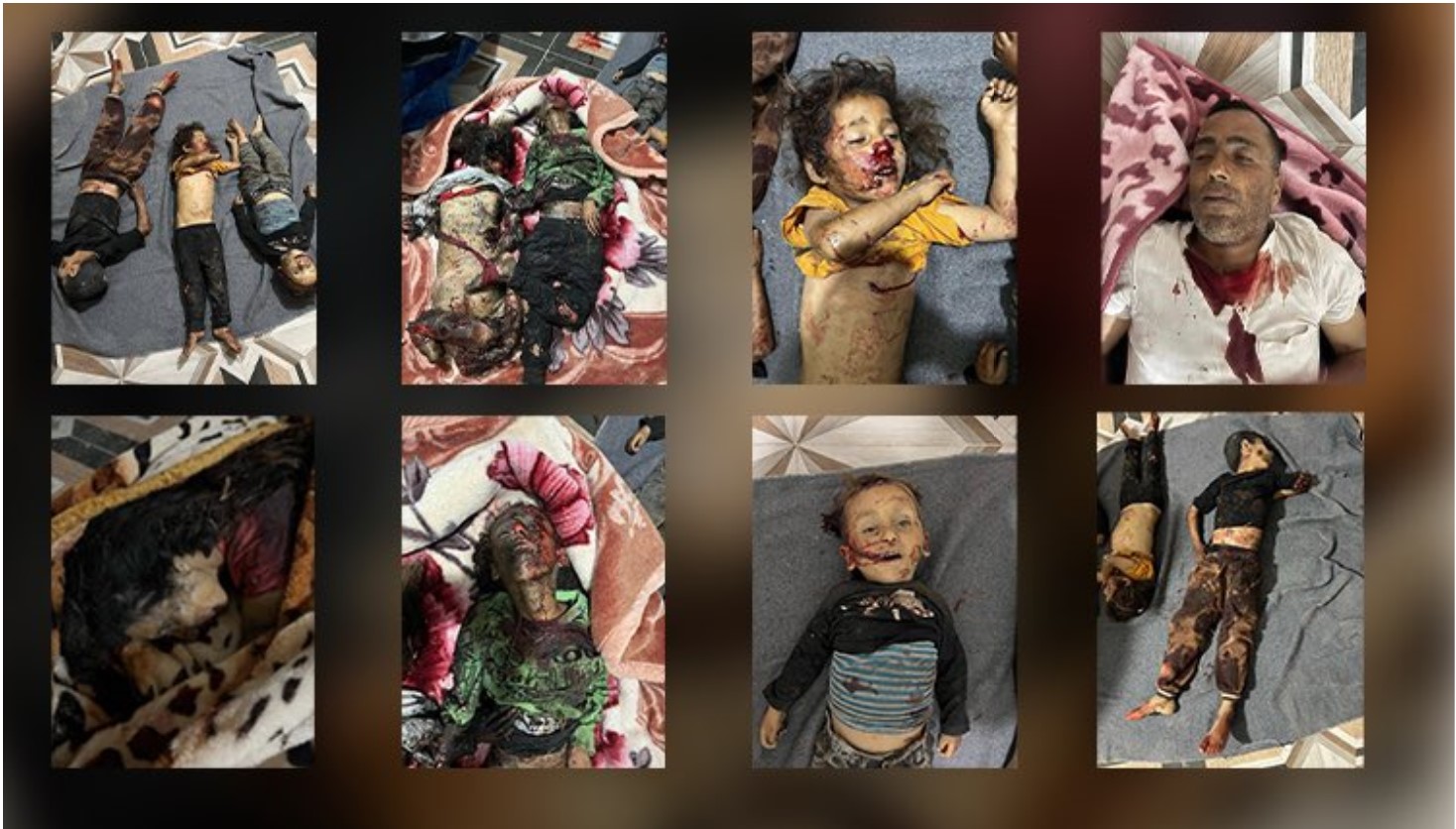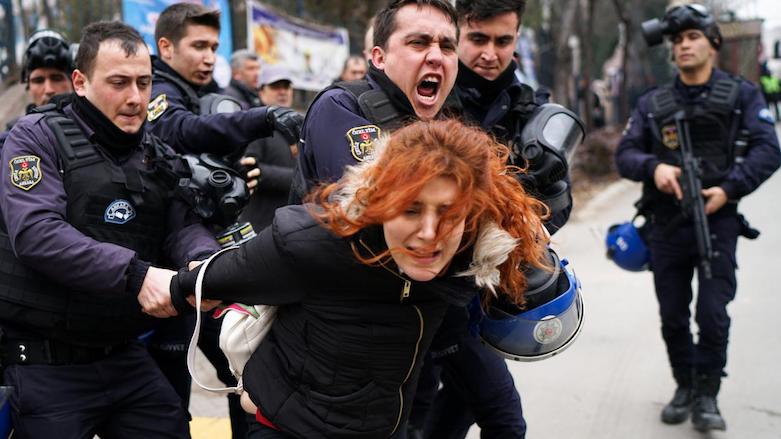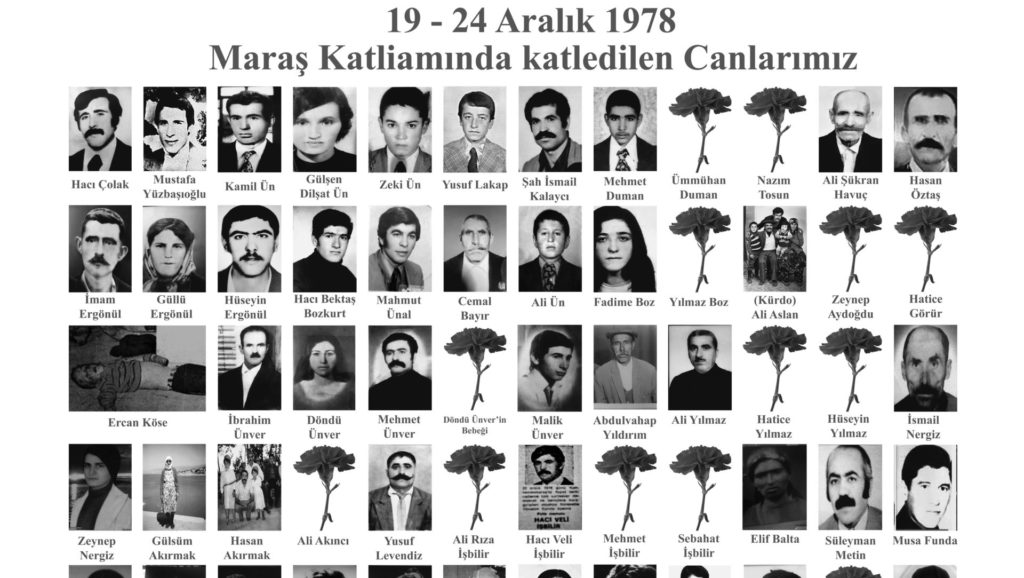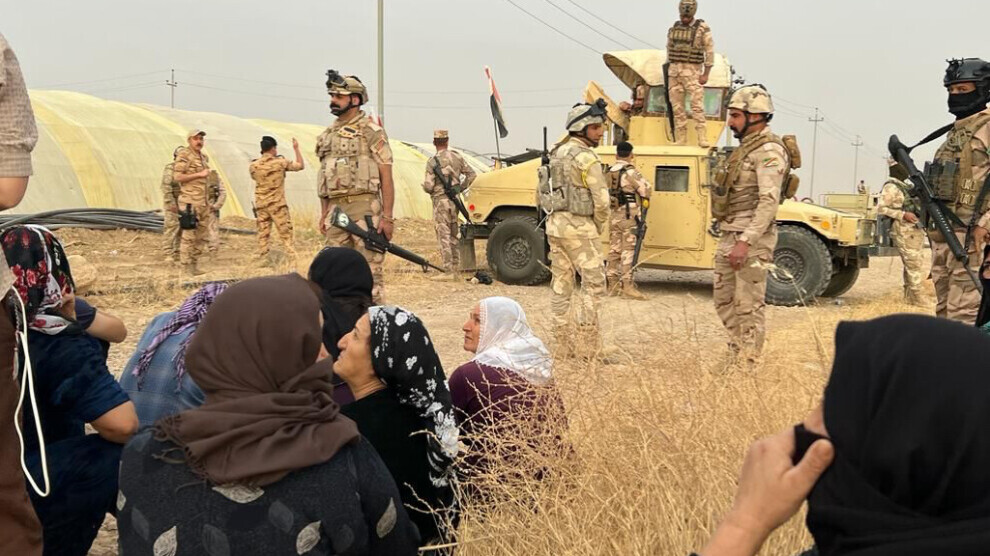|
Read More “Maraş Massacre, 46 Years of Unfulfilled Justice” »

Kurdish Centre for Human Rights
Centre Kurde des Droits de l’Homme

Kobani, Syria – March 17, 2025 Turkish Drone Strike Massacres Kurdish Family in Kobani, Continuing a Legacy of Violence Kobani, Rojava – March 17, 2025 In a devastating attack overnight…

REPORT ON THE HUMAN RIGHTS SITUATION IN TURKIYE : VIOLATIONS OF FREEDOM OF EXPRESSION AND REPRESSION AGAINST JOURNALISTS THE KURDISH COMMUNITY The Kurdish Center for Human Rights has released a…
Read More “Report on Human Rights In Turkey / February 2025” »

The resurgence of Daesh in Syria has become a significant concern following the fall of the Syrian regime. The terrorist group has taken advantage of the chaos and the…

|
Read More “Maraş Massacre, 46 Years of Unfulfilled Justice” »

The appointment of trustees in place of elected Kurdish mayors in Turkey highlights the government’s ongoing hostility towards the Kurdish population. Despite discussions aimed at resolving the Kurdish issue through democratic means, the Turkish state continues to employ heavy-handed tactics, including military strikes on civilian infrastructure in Northeast Syria and Iraq, while simultaneously undermining Kurdish political representation domestically. Recent actions, such as the arrest of Esenyurt Mayor Ahmet Özer and the removal of mayors from Mardin and Batman, exemplify a broader strategy to consolidate power and suppress dissent by criminalizing Kurdish institutions and leaders under the pretext of combating terrorism. This pattern of governance raises serious concerns about the erosion of democratic principles and human rights in Turkey.

The repression against the Kurdish people
1-INTRODUCTION
1. The report analysis the implementation of the recommendations
adopted at the third Periodic Review of Türkiye (May 2010). The
conclusion is that Türkiye has not implemented the
recommendations it accepted.
Read More “Turkey Report – The repression against the Kurdish people” »

Since the 1990s, there has been continuous pressure on Kurdish media and press in Turkey. Regardless of changes in governments, the free expression of Kurds has been deemed a crime. Anti-terror laws, particularly Articles 7 and 8, have been included to restrict free expression. The AKP-MHP administration, especially after the July 15, 2016 coup attempt, used anti-terror laws as a shield against criticisms of the government and its institutions. The laws were employed as tools to silence all opposing segments under the guise of “combating terrorism.” United Nations Special Rapporteur on Freedom of Expression David Kaye visited Turkey between November 16-18, 2016.

Introduction
A federal system was established to minimize sectarian and ethnic conflict risks and to foster cohabitation aligned with Iraq’s cosmopolitan structure. Power institutions were constitutionally shared among ethnicities and sects, including Kurds, Arabs, and Shiites, formalized through a public referendum.